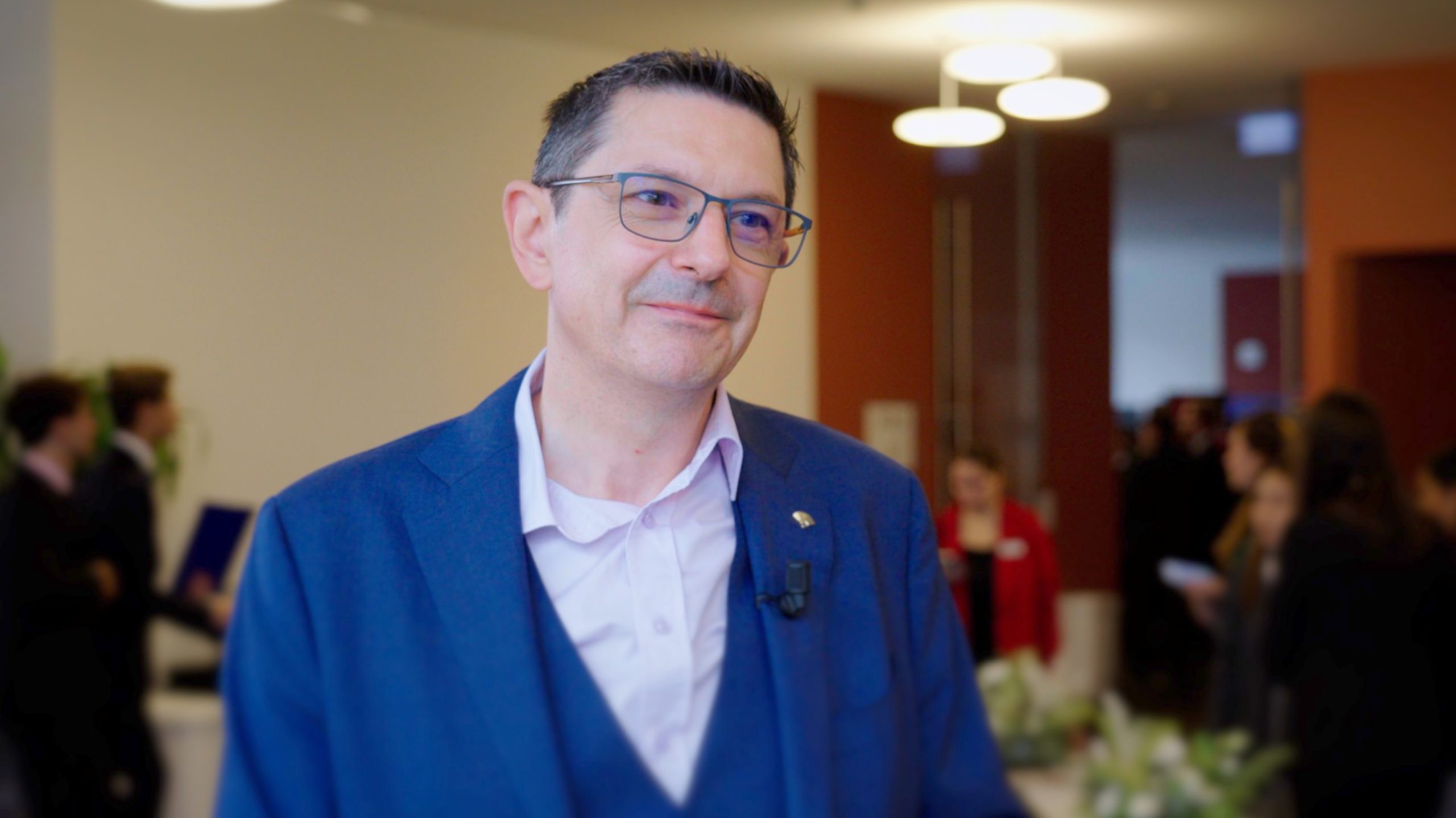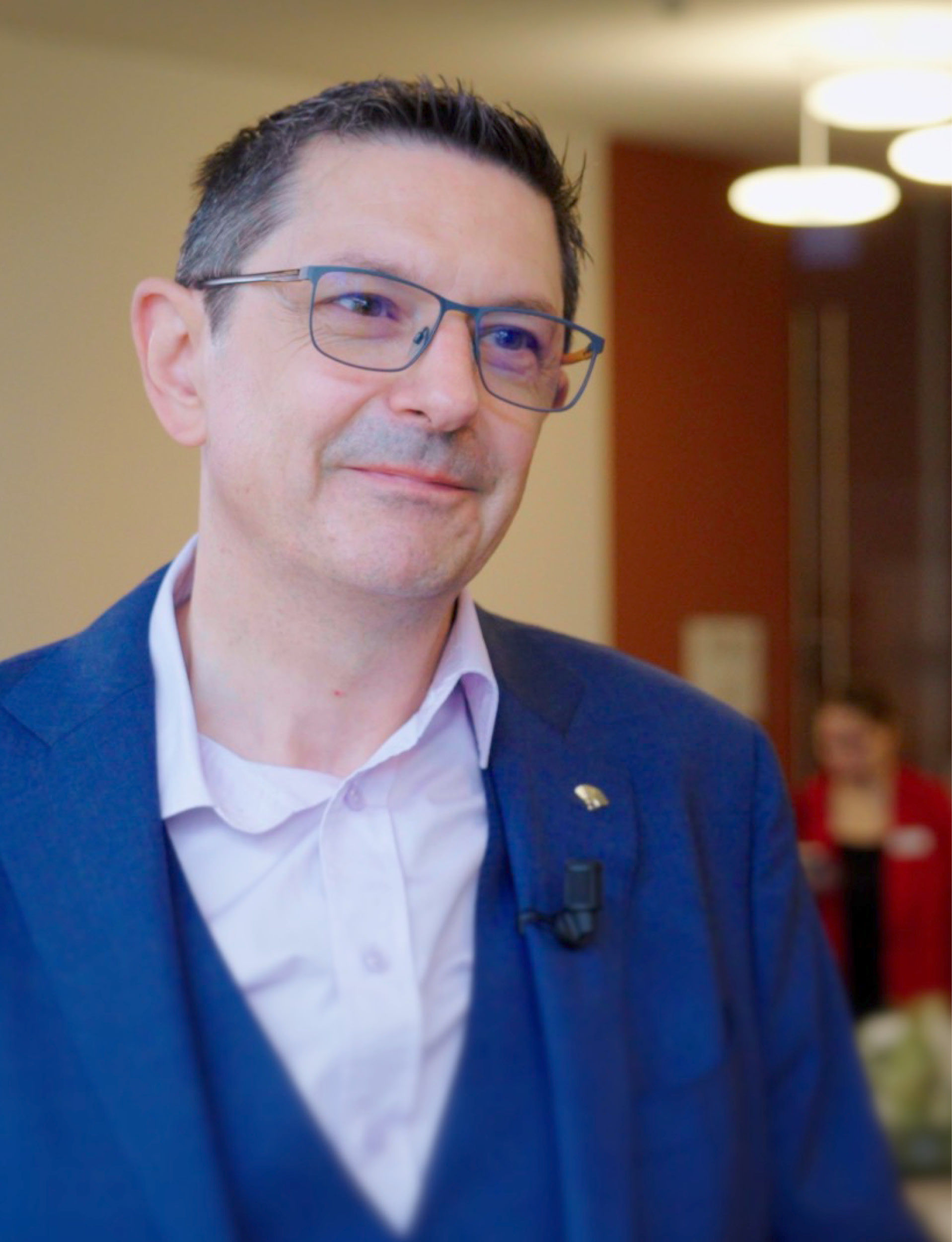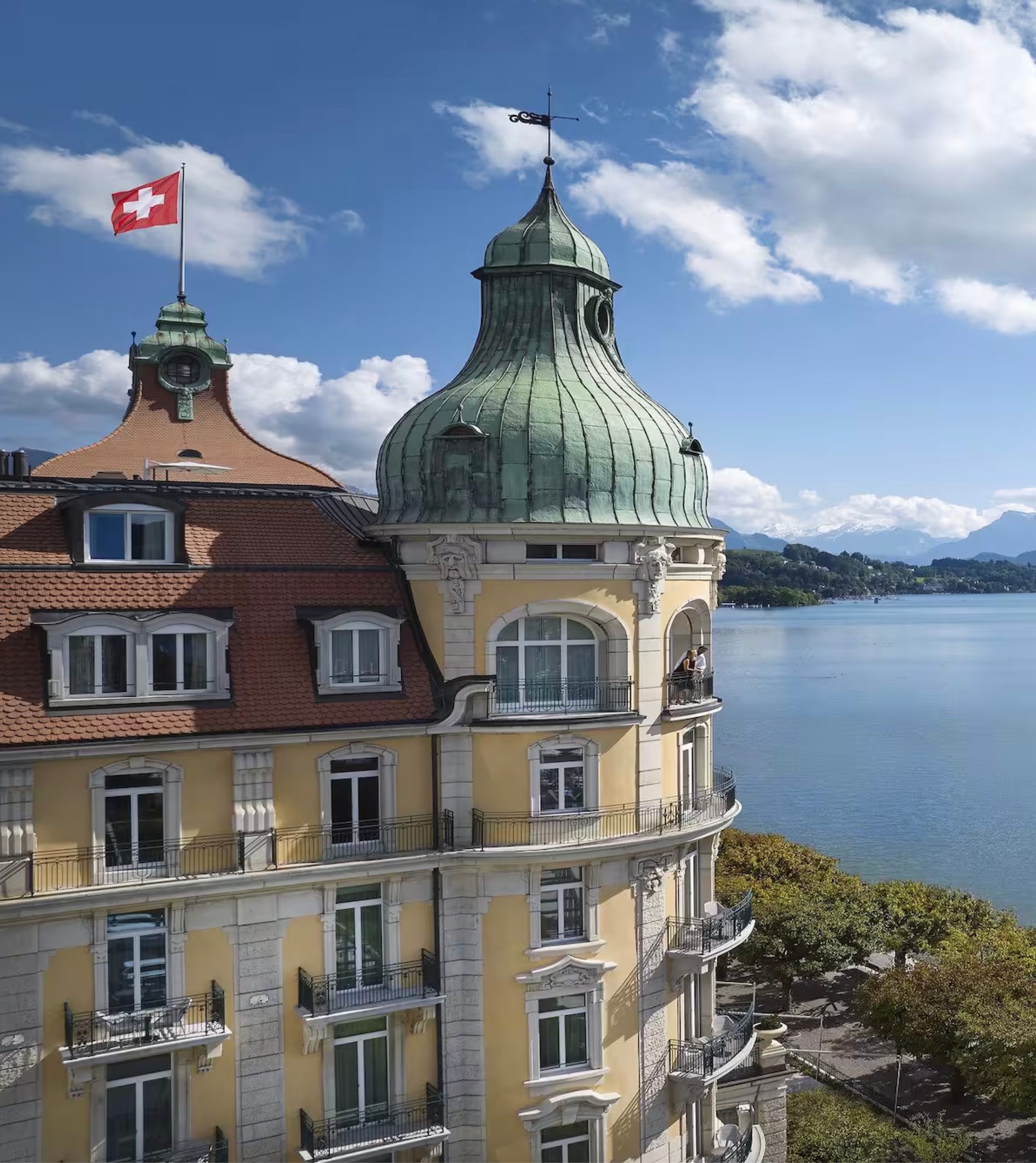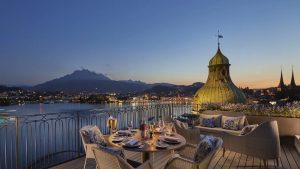


Mandarin Oriental Hotel Group is in expansion mode, with a plethora of new properties opening or scheduled to open in the coming years. What does this mean for the company’s talent requirements? We asked Christian Wildhaber, General Manager of the Mandarin Oriental Palace in Luzern, for his views…
“Iconic” is a word that’s almost become over-used, but the Mandarin Oriental Palace in Luzern is fully justified in carrying such a moniker, for it is a true icon of Swiss hospitality.
Having welcomed guests to the shores of Lake Lucerne since 1906, the hotel is today enjoying a new lease of life after a meticulous, five-year refurbishment which was completed in 2022 and saw it re-emerge into the luxury hospitality marketplace carrying the Mandarin Oriental name.
The property’s General Manager is Christian Wildhaber, a vastly experienced hospitality professional who has worked across the world for brands such as Kempinski, The Langham and Harbour Plaza, as well Mandarin Oriental.
Searching for talent

Recently, Christian and his team were on campus for our Recruitment Day, and we spoke to him about the current employment market while also asking him about the particular talents GMs like him are looking for when visiting schools such as Glion.
“We look at the combination of skills, attitudes and behaviors that align with the high standard, exceptional service expected in the industry,” he explains. “Of course, a passion for hospitality is really critical. We seek individuals who are genuinely passionate about providing exceptional guest service.
“As we work a lot with people, problem solving also is very relevant to us – we especially value individuals who can think on their feet and find creative solutions to guests’ issues. Strong communicators, too. Excellent communication is crucial in our industry as hospitality is all about effective guest interaction.”
Coming from the luxury sphere, Christian also highlighted other attributes more specific to the higher end brands. “Attention to detail is very important in the luxury segment. Meticulous attention to detail is necessary to maintain the high standards we set. Also, our people need to be adaptable. The adaptability to thrive in a dynamic, ever changing environment is really highly valued. And we work as a team. We can only be successful if we work together, so an ability to really work well with others is crucial.”

“Attention to detail is very important in the luxury segment. Meticulous attention to detail is necessary to maintain the high standards we set. Also, our people need to be adaptable. The adaptability to thrive in a dynamic, ever changing environment is really highly valued. And we work as a team. We can only be successful if we work together, so an ability to really work well with others is crucial.”
Christian Wildhaber
While many of these ‘soft’ or ‘non-technical’ skills will come as no surprise to anyone connected with the business of hospitality, Christian also recognizes the changing nature of the business; in terms of how it deploys technology across a range of disciplines, as well as how its workforce and guest profiles have become both more diverse and more demanding.
“Of course, hospitality has changed over the years. There is a growing emphasis on technology skills; at the same time diversity and inclusion is a major factor, and guest preferences have shifted over the years. Now our guests expect more personalized and unique experiences, so candidates have to adapt to meet these changing needs,” he adds.
Be flexible
With such special demands, the industry remains in something of a ‘war for talent’, and that means a more flexible and innovative approach to filling roles.

“I think there’s still a war for talent in luxury hospitality, especially in some of the more specialized roles in the kitchen, or areas such as marketing and finance. Of course, we are fortunate that Mandarin Oriental is a brand that many people want to join; but even so I have to adapt to the challenging situation. For example, we have some positions split between part-time workers, with one doing 60% and the other 40%. We also provide some home working options for certain roles,” Christian says.
What is also evolving is the ‘employer brand’ that Mandarin Oriental and its competitors present to prospective employees and – of course – how the company then delivers on that brand promise.
Christian highlights a number of elements to the Mandarin Oriental offer, among the most prominent being a strong approach to learning and development. The company also places a growing emphasis on sustainability and social responsibility, recognizing that these are issues of importance to growing numbers of people, particularly among the younger employees.
Last but not least, there are opportunities to develop through international experience that echo what has always been one of the key attractions of a career in hospitality.
Christian notes, “We offer a very solid career plan and progression, with plenty of training opportunities as well as mentorship and coaching through our Mosaic program. In addition, while we are still a relatively small hotel group, with 37 properties globally right now, we have quite a few exciting hotels opening or in our pipeline, such as in Zurich, Muscat, and Mayfair, and we encourage our colleagues to explore opportunities in other hotels within the group.
“In support of this, we have our CEA (Cultural Exchange Ambassador) program which allows people to go and work in other properties for short periods of time, and we find this really allows them to grow in their work environment.”
- To discover more about careers at Mandarin Oriental, visit the dedicated careers section of the company’s website.
Launch your career in international hospitality
Our Bachelor’s in International Hospitality Business is your first-class ticket to a global career.
















